Article: Overclocking the Intel® Celeron® D 326 Processor (64bit on the cheap)
Many thanks to Intel® for providing the processor.
IV. Stock Benchmarking
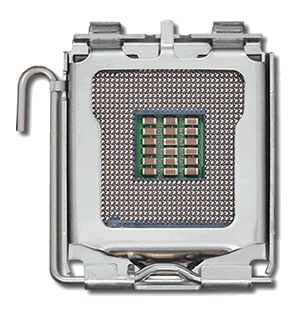
Stock Settings
For benchmarking, I will first run the system on stock settings. The stock settings will serve
as the baseline for comparison for the overclock score. This will ensure whether overclocking
the CPU will give a performance boost or whether the CPU is just being tortured to death
without any noticeable benefit.
Note that all settings here are on automatic, except for the RAM which is set to run at 2:3 ratio, i.e. DDR2-400MHz with 133MHz on the FSB. This will ensure that during overclocking, the RAM will still be in sync for a better comparison. This is needed since the motherboard will automatically use a 1:2 ratio for the RAM and processor, making the RAM run at DDR2-533MHz at just the stock setting of 133MHz FSB.
For the stock settings, all benchmark results will be acquired from three(3) runs, removing the highest and lowest score, but not averaging the total score of the three. This limit the number of random peaks of scores, and hopes to reduce the number of random unusual results. There will be no online submission of score because of time constraint and software limitation.
Temperature at idle hovers at 35C, while shoots to as high as 45c. This is far from hot, and relatively cold as this processor is designed to run to as high as 67c. This ensures that the stock cooler is more than enough for the job.
::Subsystem Test::PCMark02
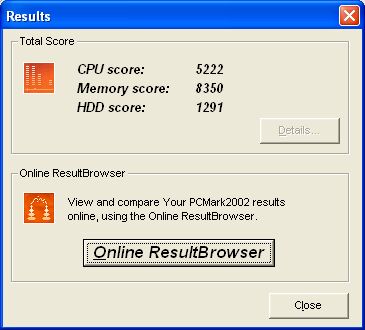
PCMark04
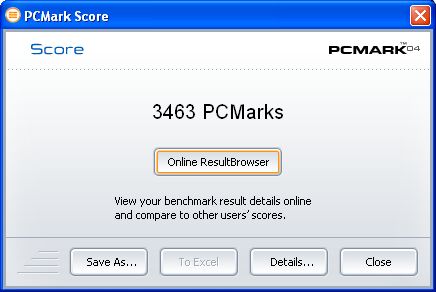
PCMark05
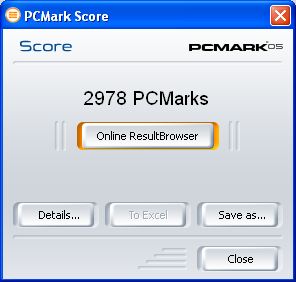
Sandra-CPU
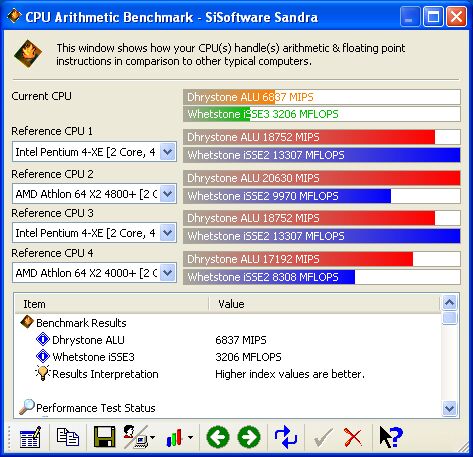
Sandra-Multimedia
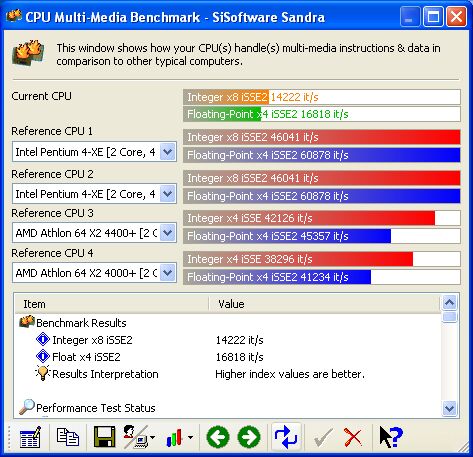
Sandra-RAM Bandwidth
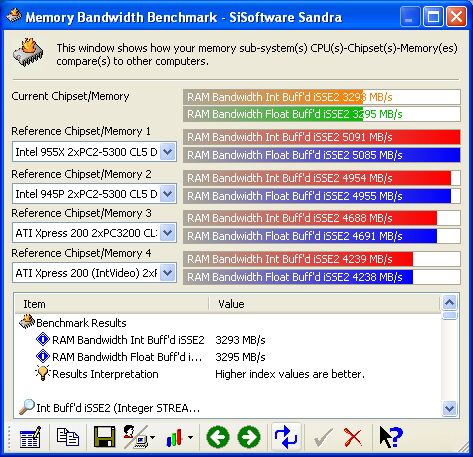
::3D Test::
3DMark01SE
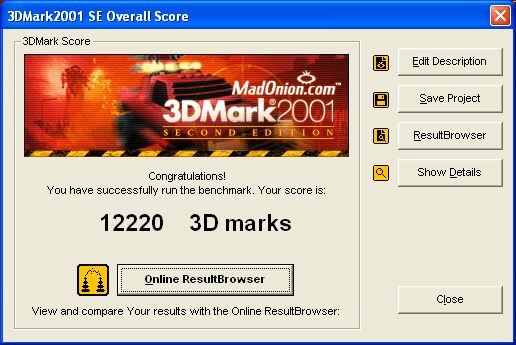
3DMark03
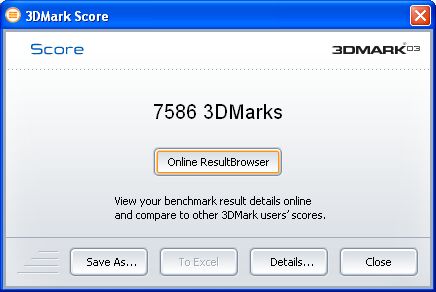
3DMark05
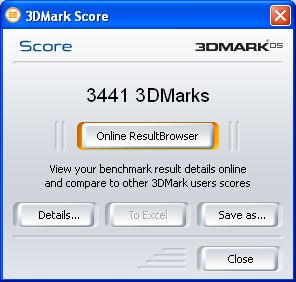
The stock results isn't very promising, though it's within the expected performance of the processor within its specifications. PCMark02 do show a better-than-average memory performance, while CPU and Hard Disk is just about average. PCMark04 and PCMark05 also shows low multi-tasking capability, a bit on the below average marks. Gaming scores on 3DMark01 to 3DMark05 all shows consistent scores and while 3DMark01 still reflects a huge portion of CPU muscle on the result or lack thereof, the other incarnation of 3DMark such as the 3DMark03 and 3DMark05 all relies heavily on the GPU, as such, the results should be used as a reference point only. About time to overclock this baby.